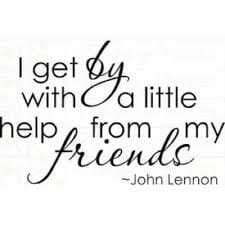 In the nonprofit world, we talk about our donors as “friends of” our organization. But when they hit a rough patch, do we act like friends to them?
In the nonprofit world, we talk about our donors as “friends of” our organization. But when they hit a rough patch, do we act like friends to them?
Think about what you do for your personal friends when they fall sick, or lose their jobs, or have a death in the family. Do you:
- Send a card, or flowers?
- Cook a meal and drop it by?
- Do something nice for their kids?
- Refer them to good doctors, or employers, or other helping professionals?
There’s no reason our nonprofits can’t do that too.
How Nonprofits Can Offer Help
Sending a get-well card to a donor who is seriously ill is a gesture that’s always appreciated. Make sure to have people sign it personally–as many people who know the donor as possible!
Sending a sympathy card also matters, a lot. I can tell you that from personal experience. When my brother died in October 2014, clients and colleagues reached out to my wife and me, and every one of them made us feel surrounded by love.
(Be careful with flowers, however. Some people are allergic, and it’s not a Jewish custom. Sending a food tray might be better. Ask someone who knows the mourners well–and find out if they keep kosher, or halal, or eat only vegetarian or vegan food, too. You want to give them something that actually helps!)
If you have a program for children, then it’s a natural to offer the children of the donor’s family a free pass, or transportation, to do something fun for them. Adults need time to themselves sometimes, and that’s a gift you can give the whole family.
And you or a partner organization may be able to give your donor legal advice, or healthcare, or assistance accessing the legal, health, housing, or food benefits they need. The anti-poverty agency where I used to work did just that for a longtime donor and for a friend of a Board member.
What Not to Do
When a longtime friend of your organization is having a hard time, that’s the wrong time to ask them for money. If common decency isn’t enough reason for you to check your campaign calendars and take people recovering from surgery or people in mourning off your list for once, think of this: do you want people to think of their loved one’s death every time they think of you?
If the donor is really a “friend of” your organization, then treat him or her like a friend.
Leave a Reply